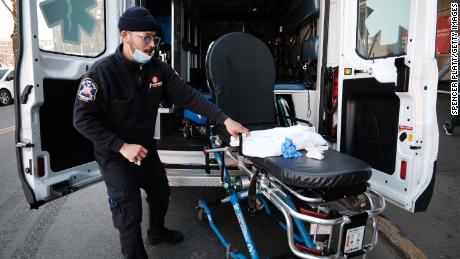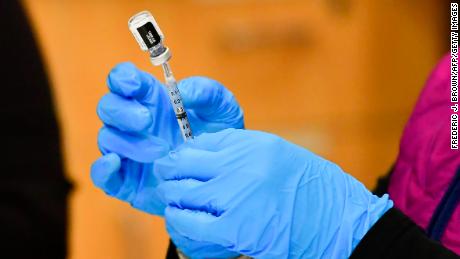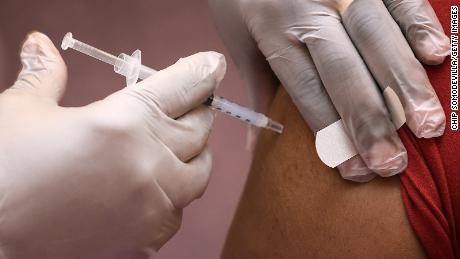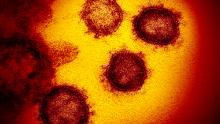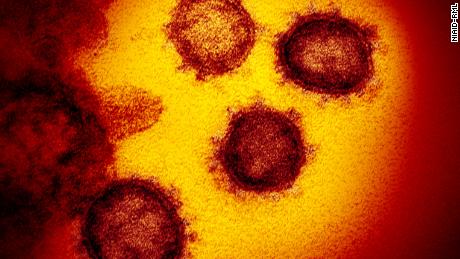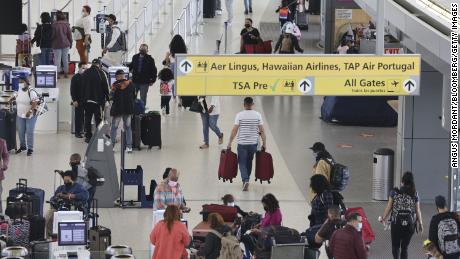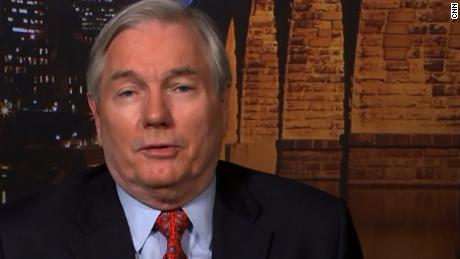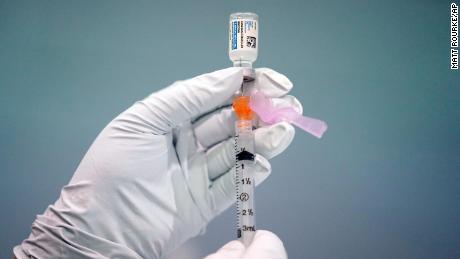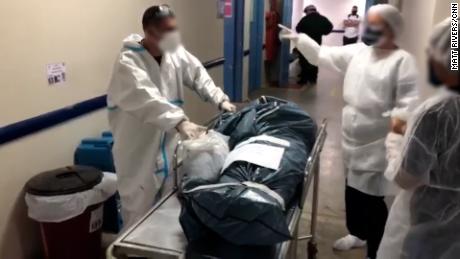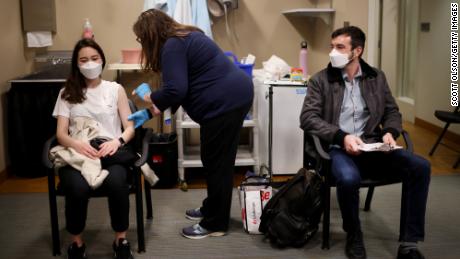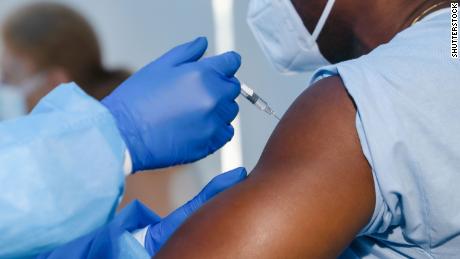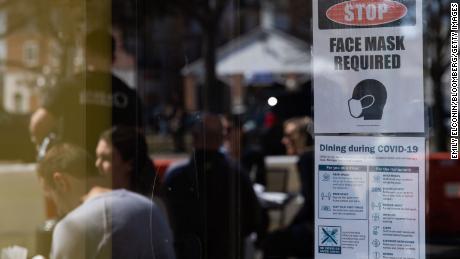If we reach herd immunity, it’s easy to lose it. Here’s why
Herd immunity with Covid-19 could come and go, scientists say. Or we might never reach it at all.
“There’s a lot of things that have to go our way to actually get to herd immunity,” said Dr. Christopher Murray, director of the University of Washington’s Institute for Health Metrics and Evaluation.
But don’t panic. Here’s why it’s possible to dip in and out of herd immunity, and what you can do now to maximize the chances of snuffing out Covid-19 for good:
“Herd immunity is the point where there’s enough people that have been either infected or vaccinated that you basically can’t sustain transmission in the community,” Murray said.
“And if one case leads to less than one new infection, then eventually it peters out.”
Estimates vary on how much of the population needs to have immunity to reach that goal.
“If we vaccinate 70% of the whole US population, including kids, and then another 15-20% have already gotten (infected), I think we’re pretty close to reaching a normalcy with the virus,” he said.
But there’s a big catch: No one younger than 16 can get a coronavirus vaccine in the United States right now. The Pfizer/BioNTech vaccine is authorized for those age 16 and older, and the Moderna and Johnson & Johnson vaccines are authorized for adults ages 18 and older.
And that’s a major obstacle for reaching herd immunity, as young people can still get infected and transmit the virus.
“We have already 25% of our population not eligible for the vaccine. I mean, we’re already starting (with our) hands tied,” said epidemiologist Ali Mokdad, a professor of health metrics sciences at the IHME.
“So we want people who are eligible for the vaccine — all of them — to take it.”
Anti-vaxxers could prevent herd immunity
A big reason we might never reach herd immunity is because not enough people are willing to get vaccinated.
If that happens, the virus will have ample opportunity to spread, slowing down a return to normal life.
“It’s important to vaccinate as many adults as possible as soon as possible,” Rodriguez said. “If you want to open up America, get vaccinated.”
Rodriguez said he thinks vaccine hesitancy would be reduced if everyone saw how badly coronavirus can ravage victims.
“One of the reasons I think a lot of people don’t believe in the severity of this infection is that (it’s) unlike cancer. If you have a family member who has cancer, you see them go through the whole process. You see them go through the chemo, you see them go through the wilting away. … You see how horrible the death is,” he said.
“In Covid, when a family member is sick, they’re rushed to the hospital, and you don’t see them again. You don’t see them drown in their own phlegm. You don’t see them gasping for air.”
Herd immunity can change depending on the season
Murray said he believes the biggest reason we can “go in and out of herd immunity” is seasonality.
“We know now that Covid-19 is quite seasonal. There’s more transmission potential in the winter than in the summer,” he said.
“I think herd immunity can occur in the summer at pretty low levels — like 55%, 60%. And I think for the winter, it’s going to be closer to 80% immune.”
How could seasons impact how much a virus spreads?
“Part of it may be humidity. So there’s the idea that these respiratory viruses don’t like humidity, and because the air outside is cold (in the winter), it gets heated up inside the house, and therefore relative humidity is lower in the winter,” Murray said.
“It could be temperature itself — that the virus doesn’t like warm temperatures, it likes colder temperatures — in terms of how long it hangs around in the air or on surfaces.”
But differences in seasonal transmission could also be due to human behavior — like winter holiday celebrations and people gathering indoors because it’s cold outside.
“So there’s some physical factors, and then there’s definitely these behavioral factors,” Murray said.
How would we know whether we reach herd immunity?
“That’s going to be the tricky part,” Murray said. “What’s going to happen, very likely in the summer, is we will see very little transmission. And I think everyone’s going to say, ‘Time to celebrate! We’re done!’
“And then sometime late in the year will be that critical period where a lot of people may get caught by surprise that Covid’s back. And that’s the tricky thing. It’s not so much how do we know we’re at herd immunity — it’s how will we anticipate that we’re going to drop out of herd immunity.”
It’ll be easier to see when we drop out of herd immunity, Murray said, because Covid-19 numbers will start spiking again.
New (or future) variants could ruin herd immunity
Here’s the good news: All three vaccines currently used in the US give strong protection against known variant strains of coronavirus.
But as the virus keeps spreading, replicating itself in new people, it has more opportunities to mutate. And if there are significant mutations, new and more dangerous variants could emerge.
“The more replication there is, the more mistakes are going to happen,” Rodriguez said.
“Think of a virus as a necklace full of different-colored beads. Maybe there are only eight colored beads to choose from. And in position No. 1, you need a red bead. Position No. 2 is a green bead. That’s the genetic code — that sequence of bead colors,” he said.
“When a virus replicates, it is supposed to make an exact replica of those bead colors. But every once in a while, maybe a green bead gets into where a red bead is supposed to be.”
The key is to quash the amount of virus circulating, so it has fewer chances to mutate and cause more infectious or deadlier variants.
That’s why getting vaccinated and continuing to wear masks are so important, Murray said.
Travel could make us fall out of herd immunity
Even if the US (or any other country) thinks it has reached herd immunity, global travel could introduce new variants and wreak havoc again.
That could be especially dangerous if a new variant compromises the effectiveness of vaccines or re-infects those who have been previously infected.
“Herd immunity will not happen until there is global immunity,” Rodriguez said.
“Just because we have herd immunity in the United States … as long as there is an influx of people from other countries and other areas, as long as there is an outflux of Americans going elsewhere, the chances of herd immunity not happening are great.”
And if a new variant spreads — either from international or domestic travel — it could infect even those who don’t travel.
“There might be one person in my hometown in Miami who didn’t get vaccinated. And he gets it. And it’s not a big deal (for him) because he’s 30 and he’s asymptomatic,” Rodriguez said.
“But in his body replicates (a variant). And that new virus is resistant to every vaccine. And then he spreads it to someone who’s vaccinated, but it doesn’t matter because this virus is resistant. And that person will get it. This is the absolute worst-case scenario.”
Immunity could wear off
Dwindling immunity — either from previous infection or from vaccination — could be another reason the US could slip in and out of herd immunity.
“We don’t know how long immunity from natural infection lasts,” Rodriguez said.
“I’ve had patients that have been infected, and we check their antibodies a month later, and they’re gone … I’ve had patients who got infected in the first surge, and they still have antibodies. But it’s very unpredictable,” he said.
“We also don’t know yet how long we’re going to have immunity from being vaccinated. We don’t know if it’s a year. We don’t know if it’s 9 months. We don’t know if it’s 2 years yet. Obviously, the people that were in the (vaccine trial) studies that started in October or so, they’re being followed on a regular basis” to help determine how long vaccine immunity lasts.
Murray said he suspects immunity from vaccination will be better than immunity from getting infected.
“The question is how good,” he said. “If natural immunity (from infection) is waning, let’s say, 20-30% over a course of a year or more, will a vaccine be only 10% (less effective)? These are things we just don’t know.”
With two potential problems on the horizon — waning immunity and the possibility of new, more dangerous variants — Murray said many scientists believe “people are going to end up getting vaccinated on some regular basis.”
This would be similar to how people get a new flu shot every year.
Covid-19 “may be around forever, but it may just not be as severe as it has been this time around,” he said. “That’s certainly the hope.”
How to maximize our chances of crushing Covid-19
The most important step is to get vaccinated, Rodriguez said.
“By maximizing vaccinations, we can minimize infectivity and mutations,” he said.
“The more we vaccinate, the less likely we are (going to slip in and out of herd immunity) because there’s going to be less replication.”
Less replication means less opportunity for the virus to mutate and become potentially dangerous variants.
“The virus only replicates when it infects someone. The virus does not have the material to make new viruses on its own,” Rodriguez said. “So floating around, a virus isn’t going to mutate.”
After getting vaccinated, it’s important to “still follow the recommendations by the CDC, because they will know what is happening in this country as far as variants,” he said.
“They know now, which is why they’re saying, ‘Please continue wearing masks.'”
The best-case scenario and a more likely scenario
The best possible outcome is that coronavirus “burns itself out because there are so many people vaccinated, it has nowhere to go,” Rodriguez said. “That’s completely possible.”
But more realistically — because of vaccine hesitancy and other factors — Covid-19 will be with us for much longer, possibly in waves, Murray said.
He said people can help prevent another seasonal surge next winter by wearing masks.
By masking up, “you really have a huge effect because if there is going to be transmission, it’s going to be much less than what we’ve seen because so many people will be vaccinated,” he said.
“So it only takes a little bit more effort to sort of stop transmission in its tracks.”
Murray said simple steps now can reduce the chances of losing herd immunity in the future.
“Anything that cuts transmission will help reduce the emergence of new variants. So definitely vaccination, and definitely mask-wearing,” he said.
“I really think it depends a lot on how well we do at convincing people to get vaccinated and how well we do at getting vaccines out to kids once they’re approved.”
The fate of Covid-19 could range from coming back every year to being completely snuffed out. And the route it takes is largely in our power right now, Rodriguez said.
“Every day, every second, how long this is going to last is absolutely in all of our controls — whether we’re young or old or healthy or feeble.”
CNN’s Paul LeBlanc contributed to this report.
![]()




